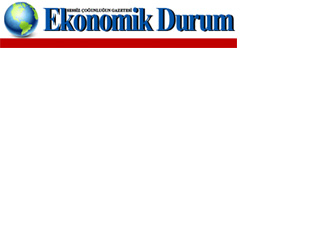The region officially comprises the greater part of Iraq’s three northernmost governorates: Dohuk, Erbil and Sulaymaniyah, plus small parts of three neighboring governorates to the south. Kurdish inhabited areas surrounding the KRI, including the oil-rich Kirkuk governorate, are recognized in the Iraqi constitution as claimed by both the KRI and the Federal Government (‘Disputed Territories’) and subject to a future settlement.
The KRG is the official ruling body of the KRI and consists of a unicameral parliament with 111 seats. The KRG is responsible for the administrative requirements of the KRI. The democratically elected KRG exercises executive power according to the KRG’s laws. The cabinet is selected by the majority party who also selects the KRG’s prime minister. The KRG president is directly elected by the KRI electorate serving both as the head of the cabinet and chief of state delegating executive powers to the cabinet. The prime minister is traditionally the head of the legislature body and shares executive powers with the president. Parliament creates and passes laws by a majority vote, but the president has the power to veto any bill.
The KRG president is Mr. Masoud Barzani who was first elected by the Kurdistan Parliament (then known as the Kurdistan National Assembly) in June 2005. He was re-elected by popular vote in the KRI elections of July 2009. On 30 June 2013, Mr. Barzani’s presidential term of four years, was extended for two years by the Kurdistan Parliament until 20 August 2015 and has recently been extended by a further two years until the general elections in 2017.
Article 117 of the constitution of Iraq that was ratified in 2005 recognizes “the region of Kurdistan, along with its existing authorities, as a federal region”, giving the KRI wide self-governing powers. The only region in Iraq to be expressly recognized by the Iraqi Constitution, it is constitutionally granted a broad range of self-governing powers (including the unilateral right to manage all aspects of its electricity sector) that have been upheld without challenge. Several areas, however, were left open to interpretation in the constitution and have led to on-going disputes between the Federal Government and the KRG; these are primarily focused on (i) the calculation and payment of fiscal transfers from the federal budget to the KRI, (ii) the management, sale and use of the proceeds of oil and gas resources in the KRI and (iii) the process to determine the final status of the Disputed Territories.
The official languages of the KRI are Kurdish and Arabic, with Kurdish being the most widely spoken. The official currency of Iraq and the KRI is the Iraqi Dinar. Since 2007, the Central Bank has had a policy of maintaining a “soft peg” of the value of the Iraqi Dinar to the U.S. Dollar. As is common elsewhere in Iraq, a significant portion of commerce in the KRI is conducted in US Dollars.
History, Geography & Geopolitical Environment
Iraq was established in 1920 under British rule after the defeat of the Ottoman Empire. The Kurdish homeland was divided between Iraq, Iran, Syria and Turkey. From 1923, Kurds sought recognition and independence. Successive nationalist movements in Iraq resulted in autonomy being granted in 1970 under a peace accord with the central government but which collapsed five years later. It was only after the 1991 Gulf War with the support of the coalition forces who created a no-fly zone over northern Iraq that the Kurds in what is now the KRI’s core areas were able to achieve de facto autonomy from the Saddam Hussein’s rule in Baghdad and establish a regional assembly and other forms of government which were to become the KRG.
In the 2003 Gulf War, the Kurdish Peshmerga forces contributed to the United States-led coalition effort to overthrow the Saddam Hussein regime. Following the conclusion of the war, the KRG played a key role (as representatives of one of the most important minority populations in Iraq) in drafting the current decentralized, federal Iraqi constitution. Following an October 2005 referendum on the constitution, in which 63% of eligible Iraqi voters participated with a 79% affirmative vote, the current Iraqi constitution came into force from 2006 formally recognizing the KRI as a semi-autonomous region administered by the KRG.
Iraq as a whole has experienced significant disruptions of the past 40 years, including multiple wars, inefficiencies resulting from a centrally-planned economy, international sanctions and dictatorship. Following the regime change in 2003, Iraq further experienced heightened security problems, exacerbated by the emergence of sectarian militias and armed groups, the lack of a strong unified government and external threats.
In sharp contrast, the KRI remained relatively isolated, secure and politically stable, due to the advantage of having (i) homogenous ethnic structure, (ii) strong cultural identity, (iii) limited sectarian diversity and tradition of tolerance, and (iv) control over its own security through the its highly motivated Peshmerga forces.
Oil and Gas Production
Iraq has the third-largest proven oil reserves in the world, estimated around 150 billion barrels, and the second-largest producer in OPEC. According to the International Energy Agency, in June 2015 Iraq achieved a record high oil production of 4.1 million barrels per day, of which over 3.6 million barrels per day are being exported. The KRI has seen the greatest growth in production since mid-2014, while growth in the south has been relatively subdued due to limitations in export infrastructure and other operational investment needs. Oil production is expected to continue to increase across Iraq during 2015-18.
KRI is estimated to have potential untapped oil reserves estimated at 45 billion barrels of proven reserves and between 3-6 trillion cubic meters of gas reserves, representing approximately 32% of Iraq's proven reserves. Most of these reserves are located in the governorate of Erbil and the KRG’s focus is on developing these fields swiftly. These amounts have increased significantly now that KRG also controls the nearby oil producing fields in Kirkuk.

Further infrastructure work is earmarked for the power and water sector, where there are 19 projects planned or under way, worth a combined total of $8.9bn. They include the $2.1bn Bekme dam project planned by the Ministry of Water Resources on the Greater Zab River in Erbil governorate. This project dates back several decades and was 35 per cent complete before the 1991 Gulf War broke out. In its current iteration, the project will comprise a 230-metre-high dam with a power generating capacity of 1,536MW. However, it is currently on hold and there is no known timescale for work to be revived. More promising is the $1.25bn Dohuk natural gas power plant being developed in several phases by the Netherlands-based Unit Investment and Turkey’s Polteks Grup. The first phase will include a 560MW open-cycle power plant and is estimated to cost about $578m.

Polteks Grup Yönetim Kurulu Başkanı Fethi Polat da Kuzey Irak'taki iş potansiyelinin, ülkenin diğer bölgelerindeki daha 'vadeli' hedeflere değişilmemesi gerektiği görüşünde. Beş yıldan beri bölgede çeşitli taahhüt projelerini hayata geçirdiğini ifade eden Polat “İşim gereği yılın neredeyse yarısını geçiriyorum bölgede. Gerek bölgesel idare yetkilileri, gerekse vatandaş için Türkiye gelişmiş dünya ile entegrasyonun adı” diyor. Fethi Polat bu değerlendirmeye hayli önem atfetmişe benziyor. Zira bölgedeki mesaisini biraz daha farklı bir kulvara taşımaya karar vermiş durumda. Bugüne kadar hak ediş bedeli karşılığı sadece taahhüt işleri yapan Polat, bölgedeki varlığını daha kalıcı bir hale getirme kararı almış. Polat'ın yönetimindeki Polteks Grup , Erbil'e demir-çelik tesisi kuruyor. Tesisin inşaat çalışmaları başlamış durumda. Yıllık 100 bin ton inşaat demiri üretecek olan tesis için yapılacak yatırım tutarı ise 30 milyon dolar.

Unit Investment NV ve ağırlıklı olarak Kürdistan’da projeleri bulunan Polteks, ortak olarak Türkiye sınırına yakın Zaho’da 840 MW’lık bir doğalgaz santrali kurmak için Kürdistan Elektrik Bakanlığı ile sözleşme imzaladı. Alınan bilgiye göre, ilk etapta 840 MW’lık kurulu güce sahip olacak olan doğalgaz santralinin ikinci etabı tamamlandığında kapasite 1.260 MW’a çıkacak. Unit Group, geçtiğimiz beş yıllık dönemde yaklaşık 2.5 milyar dolarlık yatırım yaptı. Polteks Grup’un ise, Kürdistan’da 10 yılı aşkın bir geçmişi bulunuyor. Grubun, Duhok’ta 130 milyon dolarlık yatırımı bulunuyor.




